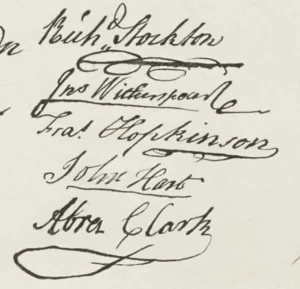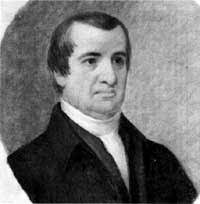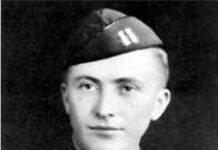Abraham Clark
Those 56 signers of the Declaration of Independence were not all highly educated, nor wealthy. Nor were they all dedicated politicians.
New Jersey’s Abraham Clark, one of the five from the Garden State, was none of the above but was well loved, well respected, and a patriot who lost his own sons in the Revolution.
Born in Union County in the Roselle area, he was the only son of a farmer and thus did not receive much of a formal education. Yet his parents taught him the value of books and hard work so as a young man, Clark also got a job with a local surveyor respected in the area for having good sense and knowing the law.
Clark became the same, and even though he never became an attorney, he earned a reputation as the “Poor Man’s Counselor” because he was generous with time and talent in helping others with land disputes, mortgages and other legal matters.
Because of his love for the colonies, he also served on various committees in revolutionary conventions and helped draft the New Jersey constitution, then being elected to make up the New Jersey delegation who went to Philadelphia in June of 1776. The five were all named the month before the resolution was passed to give their support to founding the new nation.
In Philadelphia, Clark earned his reputation for disliking pompous and posturing attitudes, so much so that Benjamin Rush, a signer who kept copious notes on everybody in the Continental Congress described him as sensible but cynical, and “uncommonly quick sighted in seeing the weakness and defects of public men and measures.” Clearly, Mr. Clark didn’t like government officials who talked and talked, but didn’t take action.
He was eager to sign the Declaration and knew the personal costs of it. Even though his own sons were in the war, captured and imprisoned, he said he felt the danger the colonies are in, adding “perhaps our Congress will be exalted on a high gallows,…. “

Clark’s son Aaron was imprisoned in the Sugar House, a New York dungeon, his son Thomas was imprisoned on the notorious prison ship, the Jersey. And possibly a third son, Andrew, may also have been imprisoned, and later died on that ship.
Despite his personal losses, Clark continued to serve in Congress, was at the Annapolis Convention, and was scheduled to be at the Federal Convention in 1787 to help draw up the new Constitution. While his own health prevented him from being there, he nonetheless put in his opinion, opposing the entire doctrine until it eventually included the Bill of Rights.
He was New Jersey’s congressman from 1791 to 1794 when he was back home in Roselle. He was outdoors, felt sick and left his lands to get back to his home and bed. He died there at age 68 several hours later. He had served his new nation 18 years after signing the Declaration.
Abraham Clark is buried at the Presbyterian Church Cemetery in Rahway,
Other Stories on New Jerseyans who signed the Declaration of Independence



